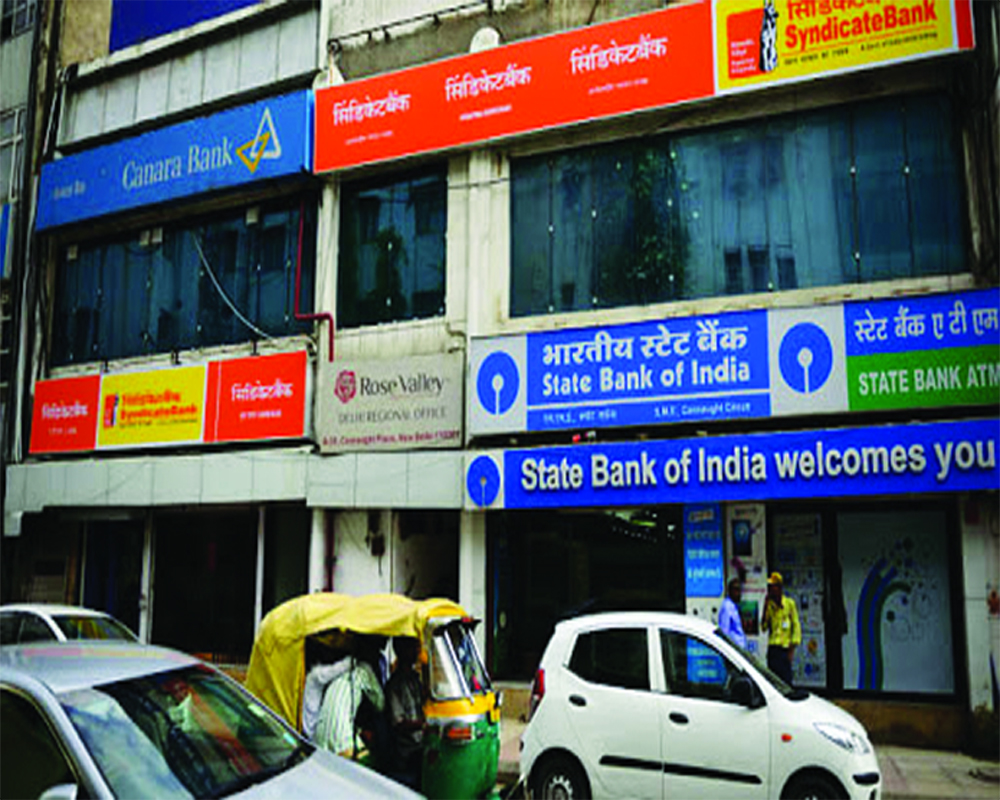One result of a distressed economy is that the Govt may be required to play a major role in the fate of many banks
As the pandemic continues to ravage lives and livelihoods, one unintended victim of the outbreak will be the Indian banking industry. In the new-fangled language of the virus, those with comorbidities will suffer. This includes financial institutions, both banking and non-banking. In the economic sense, public sector banks (PSBs) which entered the pandemic quite fragile are likely to be severely hit. The reason being that the knock-on effects from the worst-hit sectors will flow directly to banks and NBFCs, further exacerbating the problem of non-performing assets (NPAs). Therefore, the Government has provided relief to stimulate the sluggish economy and prevent a fiscal disaster. Last year, the Reserve Bank of India (RBI) had allowed moratoriums, which will pile up and create a negative impact over the course of this year and the next. Fortunately, the RBI permitted a one-time restructuring of loans to companies in the distressed sectors to iron out this problem. Furthermore, the RBI can loosen its prudential norms to the pre-1992 era and not recognise bad loans — a move that is likely to allow banks to operate at a lower pace of credit in the economy, given that Government ownership prevents a run on banks.
Alternatively, recapitalisation of the banks by an extremely cash-strapped Government can be considered by the RBI. However, both options are tough and the gravity of the crisis cannot be wished away. One result of a distressed economy and failing monetary reliefs is that the Government may be required to play a significant role in the fate of many banks. When the Government does intercede, the topic of nationalising banks often arises soon after, and the subject stirs lively debates. While bank nationalisation stood for energising priority sectors, the crumbling and debilitated functionaries and Micro, Small and Medium Enterprises (MSMEs) that were, and to a great extent, still are, in desperate need of well-regulated credit, the recent view on the privatisation of these banks has opted for a rather capitalism-driven approach. There is an emergence of the school of thought that re-privatisation of PSBs finds its roots in the ideologies that are rooted in the advocacy for free-flowing competition in the marketplace, where individuals fend for themselves, adapt, survive and overcome, or succumb to marketplace fiends and secede to stronger competition. To such a school of thought, governmental aid comes as a bail-out option, aimed at keeping the proverbial “ailing and wounded animal” alive rather than putting it out of its misery.
However, amid all the hue and cry, the intent of the Indira Gandhi Government of 1964 should once again be taken into consideration. The concept of wiping out NPAs and bad assets not only warrants the efficient working of the recovery mechanism under the Securitisation and Reconstruction of Financial Assets and Enforcement of Security Interest Act and the Insolvency and Bankruptcy Code, but also deems the establishment of institutions like Bad Banks, necessary. In essence, the revitalisation of the nationalisation-led movement would require the functioning of Bad Banks, wherein procurement of NPAs, stressed assets and bad loans would further the intent behind revitalisation of the erstwhile intent, while also maintaining a quasi-capitalistic mechanism of banking institutions being run, that emulate the recent privatisation-led ideologies. Furthermore, since the procurement of banks of illiquid assets with credit risks is done, the banks earn incentives from the Government in the form of credit-provisioning subsidies and liquidity increasing tools. Thus a healthy synergy between the banks, the public and the Government, to encourage such banks, may be seen as vital for a reinvigorated credit facilitation system and the India economy at large.
(The writer is Managing Partner KS Legal and Associates. The views expressed are personal.)


























